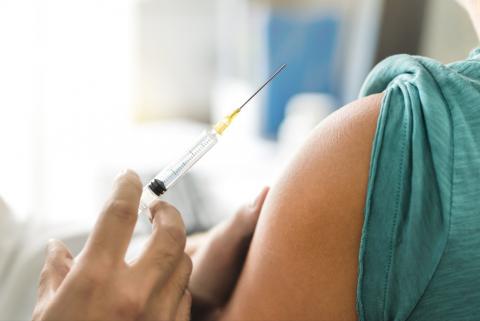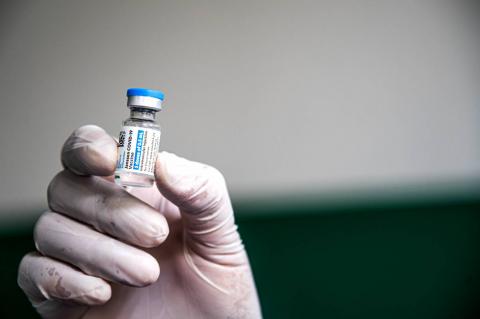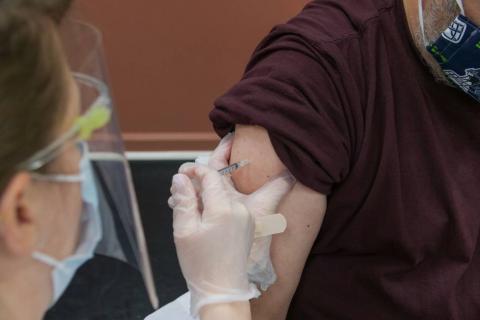In pregnant women, the second dose of the covid-19 vaccine is more important to develop a complete immune response
A study published in Science Translational Medicine shows that pregnant women are more dependent on a second dose of vaccine to develop a full immune response. The work sheds light on how pregnancy affects immunity against SARS-CoV-2, a question still little studied. Obstetrician Mar Gil stresses the importance of getting pregnant women vaccinated, and of their inclusion in clinical trials.

The study sheds light on how pregnancy affects immunity against SARS-CoV-2. / Pixabay.
María del Mar Gil - segunda dosis embarazadas EN
María del Mar Gil
Doctor in Obstetrics in the Gynaecology and Obstetrics Service of the University Hospital of Torrejón and co-founder of the iMaterna Foundation
The study shows that pregnant women require a higher percentage than the general population a second dose of COVID-19 vaccine to achieve protective antibody levels. This is an interesting but expected result.
It was expected because pregnant women have a slightly depressed immune system, after all they have to tolerate the fact that there is a foreign body growing in their body, and that makes their immune system less reactive to other threats.
But it is a very timely study, because it encourages pregnant women to get vaccinated. In Spain there is no vaccine refusal among pregnant women, but in the UK and Northern Europe it is high, with vaccination rates in pregnant women not exceeding 10-15%.
So it is very timely that it can be made clear, with data, that the full two-dose vaccination schedule is necessary.
The need to include pregnant women in clinical trials
It is also important to stress that pregnant women should be included in clinical trials, not only because this would help to understand all these aspects better, but also because it would help to convince women and their own doctors of the desirability of vaccination.
Pregnancy has been an exclusion criterion in vaccine trials because pregnant women are considered vulnerable. But the truth is that they are also vulnerable to the disease, and in the end we have started vaccinating them without data to confirm safety, which is not consistent. I understand that it is unethical to include them in a trial if you think their risk [of unwanted effects] is higher, but is it ethical to vaccinate them without any prior evidence?
"It's complicated, I'm the first person who doesn't find it easy to tell a pregnant woman to get vaccinated if I have no data [to support safety in her case], and even if I don't think it's dangerous. On the other hand, of course, a study of a few hundred cases won't completely resolve the doubts, but it will at least provide some evidence.
Summary of the Science Translational Medicine study
The study shows that pregnant women "are more dependent on a second dose of vaccine to develop a full immune response". The work sheds light on how pregnancy affects immunity against SARS-CoV-2, an "important but understudied" question.
Science Translational Medicine publishes a review article by Cristian Ovies of Duke University, for whom this study "calls for incorporating women at different stages of pregnancy into clinical trials so that they are better represented in the vaccine development effort". During the pandemic, very few studies included pregnant and lactating women, a group highly vulnerable to severe CVID-19.
Caroline Atyeo et al.
- Research article
- Peer reviewed
- People
- Observational study



